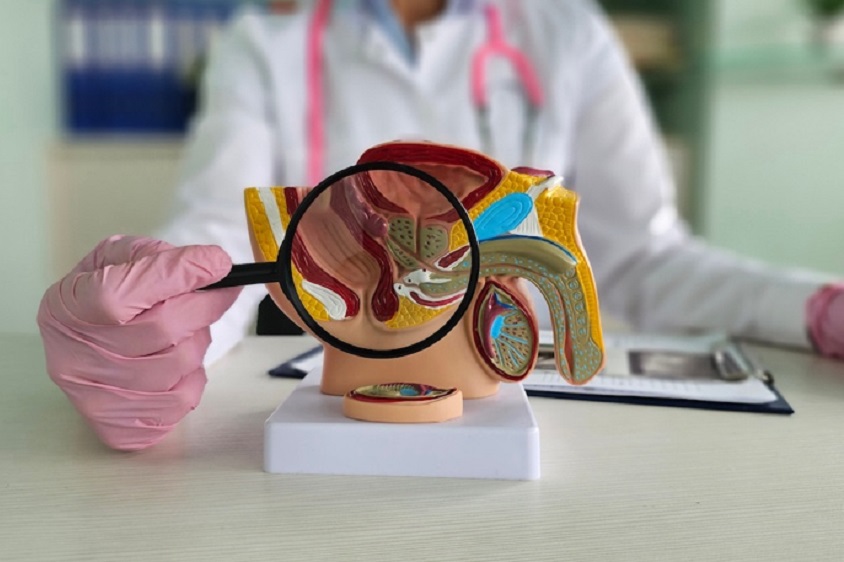Why Does Erectile Dysfunction Happen?
- Updated on: Feb 6, 2025
- 4 min Read
- Published on Feb 6, 2025

Erectile dysfunction (ED) is an incredibly common issue that impacts men of all ages globally. Statistics show that around 322 million men worldwide grapple with ED.1

Source: Adobe Stock
While ED can certainly be frustrating and even embarrassing, the good news is that, in most cases, it is treatable. By understanding what causes ED, you can take steps to improve your sexual health and performance.
This article will break it down for you – from the physical and psychological causes to the lifestyle factors that play a role.
What Is Erectile Dysfunction?

Source: Adobe Stock
Erectile dysfunction (ED) is the inability to get or maintain an erection firm enough for sexual intercourse. Occasional difficulties are normal, but if they happen often, they could be signs of an underlying health issue.1
An erection depends on proper blood circulation, nerve function, and hormonal balance. If something disrupts any part of this system, ED can result.1
ED is more than just a physical condition—it can affect self-esteem, mental health, and relationships. It can be caused by medical conditions like heart disease, high blood pressure, and diabetes, which limit blood flow to the penis. Psychological factors, such as stress and anxiety, can also play a role. Certain lifestyle habits, like smoking, excessive alcohol consumption, and lack of exercise, can further contribute to the problem.1
The good news? There are many ways to treat ED, from lifestyle changes to erectile dysfunction medications that help restore healthy sexual function.
Physical Causes of Erectile Dysfunction
Many cases of ED have a physical cause, often related to the circulatory system, nervous system, or hormonal imbalances.1 Some of the most common physical causes include:
- Cardiovascular disease: Conditions like atherosclerosis (narrowing of the arteries), high blood pressure, and heart disease can restrict blood flow to the penis, making it difficult to achieve an erection.
- Diabetes: This condition can cause nerve damage (neuropathy) and poor blood circulation, both of which can contribute to ED.
- Obesity: Excess weight increases the risk of cardiovascular problems, which may affect erectile function.
- Hormonal imbalances: Low testosterone, thyroid disorders, and increased prolactin can impact sexual performance.
- Neurological conditions: Neurological issues caused by diabetes, alcoholism, multiple sclerosis, and spinal cord injuries can interfere with nerve signals required for an erection.
- Certain medications: Drugs used to treat high blood pressure, depression, and anxiety can have side effects that contribute to ED.
- Substance use: Excessive alcohol consumption, smoking, and drug use can all negatively impact erectile function.1
Psychological Causes of Erectile Dysfunction
Sometimes, ED isn’t caused by a physical issue at all—your mind plays a big role in sexual performance. Here are some common psychological factors that may contribute:
- Stress: Work-related stress, financial concerns, or personal pressures can interfere with sexual performance.
- Anxiety: Fear of sexual failure or performance anxiety can create a self-perpetuating cycle of ED.
- Depression: Mental health conditions like depression can lower libido and make it difficult to maintain an erection.
- Relationship issues: Poor communication, unresolved conflicts, or emotional distance can contribute to sexual dysfunction.
- Past trauma: A history of sexual trauma or negative sexual experiences can lead to difficulties in achieving an erection.2
Lifestyle Factors That Contribute to Erectile Dysfunction
The way you live your daily life can have a big impact on your sexual health. Here are some habits that can hurt your ability to perform:
- Smoking: Smoking damages blood vessels, reducing circulation and making erections harder to maintain.
- Excessive alcohol use: While a drink or two may help with relaxation, too much alcohol can cause ED.
- Lack of exercise: Regular physical activity helps maintain good blood flow and improves confidence—both essential for healthy erections.
- Poor diet: A diet high in processed foods, sugar, and unhealthy fats can contribute to conditions like obesity, diabetes, and heart disease, which are linked to ED.1
Age and Erectile Dysfunction
ED becomes more common with age, but it is not an inevitable part of getting older. While younger men may experience ED due to stress or anxiety, older men are more likely to develop ED due to underlying health conditions such as diabetes, heart disease, and declining testosterone levels. However, with the right lifestyle choices and medical support, many men can continue to enjoy a healthy sex life well into their later years.2
When to See a Doctor

Source: Adobe Stock
If you are experiencing persistent ED, it’s important to talk to a doctor. Seeking medical advice is especially important if:
- Your ED occurs frequently and affects your confidence or relationships.
- You have other symptoms, such as chest pain, shortness of breath, or fatigue, which could indicate a more serious health condition.
- You have a sudden onset of ED, which may suggest an underlying medical issue.
- You experience a loss of libido or other hormonal symptoms.
- You suspect your medication might be contributing to the problem.1
Conclusion
Erectile dysfunction is a common but treatable condition. Understanding the causes—whether physical, psychological, or lifestyle-related—can help you take the necessary steps to improve your sexual health. Whether it’s making healthier lifestyle choices, addressing stress and anxiety, or seeking medical treatment, there are many ways to manage ED. Don’t hesitate to talk to a healthcare provider and explore your options.
Bibliography
- Johns Hopkins Medicine. (n.d.). Erectile Dysfunction. www.hopkinsmedicine.org. https://www.hopkinsmedicine.org/health/conditions-and-diseases/erectile-dysfunction
- Urology Care Foundation. (2018, June). Erectile Dysfunction (ED): Symptoms, Diagnosis & Treatment. www.urologyhealth.org.
https://www.urologyhealth.org/urology-a-z/e/erectile-dysfunction-(ed)












